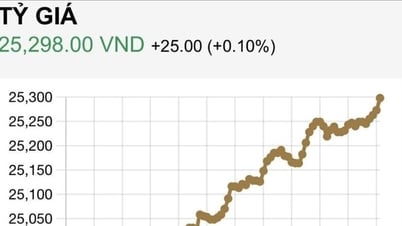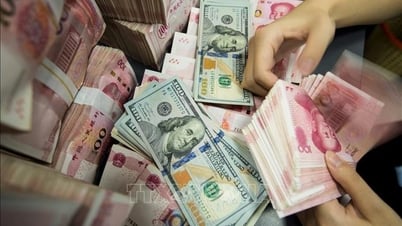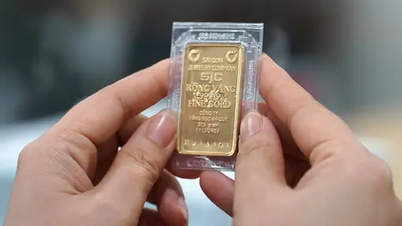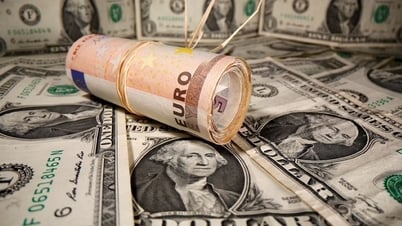In just a few days, the yen has fluctuated by several percent against the US dollar, raising speculation that Japanese authorities are intervening in the market.
The yen was hovering around 149 yen per US dollar this morning. Yesterday, the price rose nearly 2% to 147 yen per USD, after falling to 150.1 - the lowest since October 2022.
The yen's surge yesterday has fueled speculation that Japanese authorities may have intervened to support the currency. "If intervention is taking place, it would be consistent with recent warnings from senior officials and past moves," said James Malcolm, head of foreign exchange strategy at UBS.
These moves are unlikely to reverse the trend in the foreign exchange market immediately. However, they may provide some reassurance to investors and give authorities more time to find a solution.

Yen has been continuously losing value against the US dollar recently. Chart: Reuters
Japanese Finance Minister Shunichi Suzuki told reporters today that they will take necessary measures to prevent the yen from moving too far, stressing that they "will not rule out any possibility." He declined to confirm intervention to prop up the yen on October 3.
"The exchange rate should move according to the market, reflecting fundamental factors. Strong fluctuations are something no one wants. The government is closely monitoring this issue," he said.
Another top currency official in Japan, Vice Finance Minister Masato Kanda, also said today that officials look at many factors to decide whether the yen is being too volatile.
“If currencies move up and down too much in a day or a week, that’s too volatile. But if you take a period of time and small fluctuations add up to big fluctuations, that’s too volatile,” Kanda said.
Last year, for the first time since 1998, Japan intervened to support the yen, which fell to a 32-year low against the dollar, at 151.9 yen to the dollar.
Japanese authorities are under pressure as the yen has continued to weaken in recent times. The main reason is the contrasting monetary policies between Japan and other major economies such as the US and Europe.
While the US and Europe have raised interest rates aggressively to combat inflation, Japan has maintained negative interest rates. This has caused investors to sell the currency and switch to other channels for higher returns.
Ha Thu (according to Reuters)
Source link




![[Photo] Binh Trieu 1 Bridge has been completed, raised by 1.1m, and will open to traffic at the end of November.](https://vphoto.vietnam.vn/thumb/1200x675/vietnam/resource/IMAGE/2025/10/2/a6549e2a3b5848a1ba76a1ded6141fae)



































































































Comment (0)